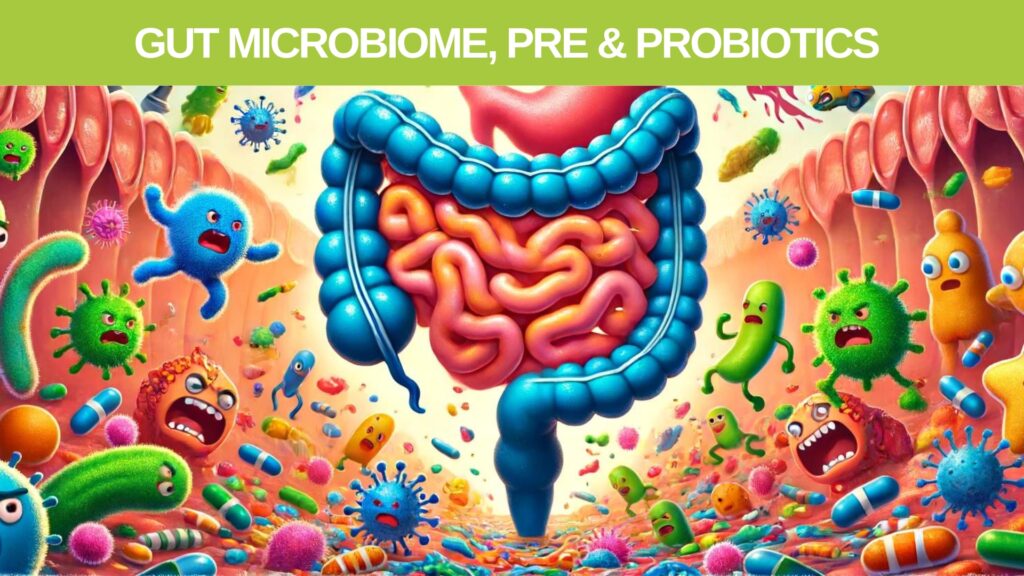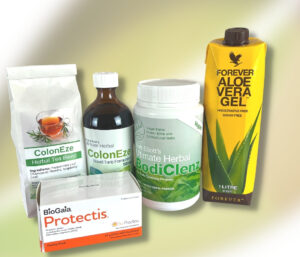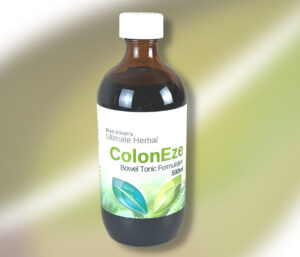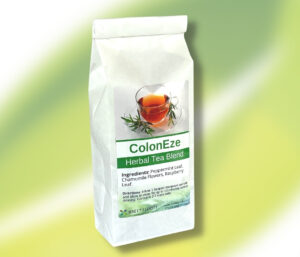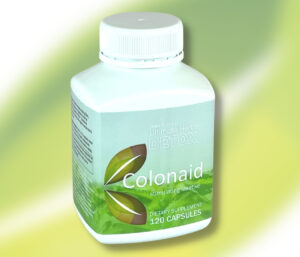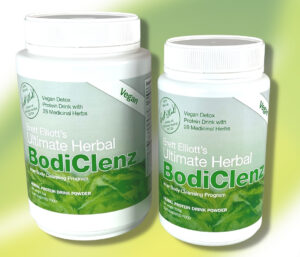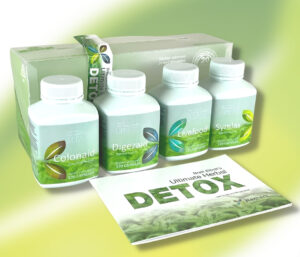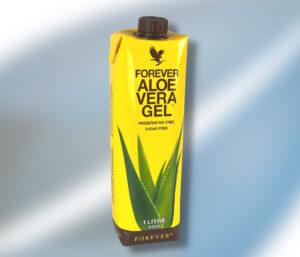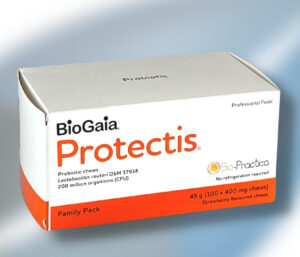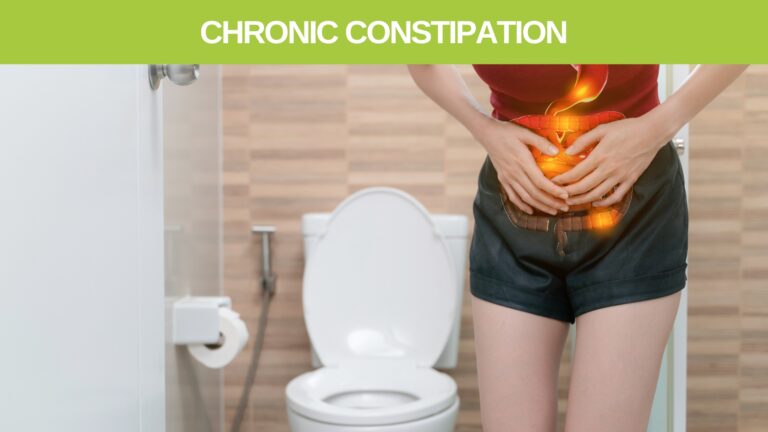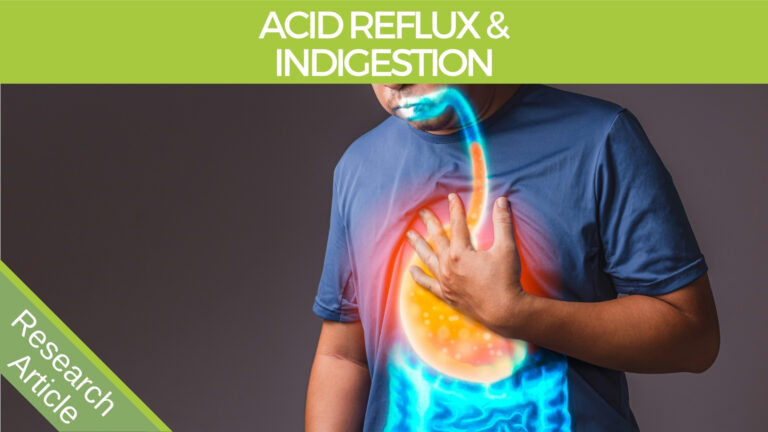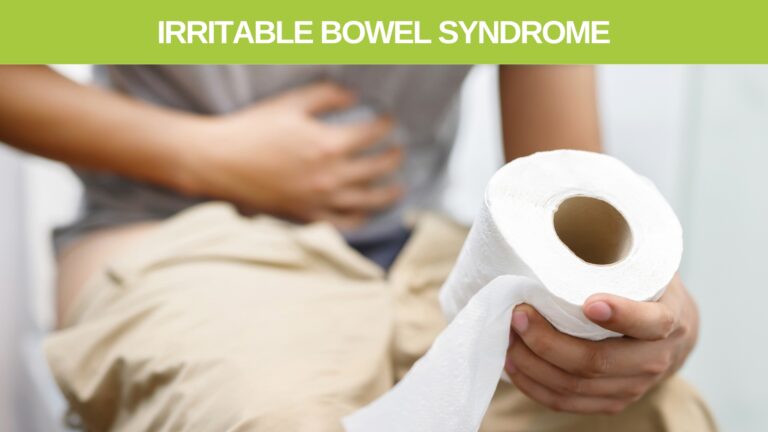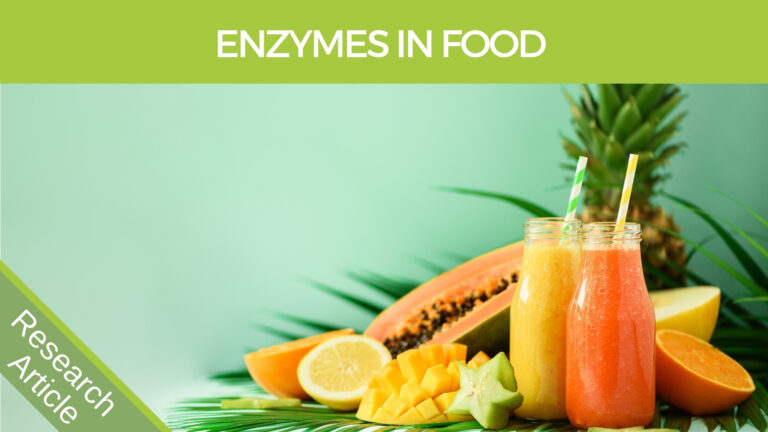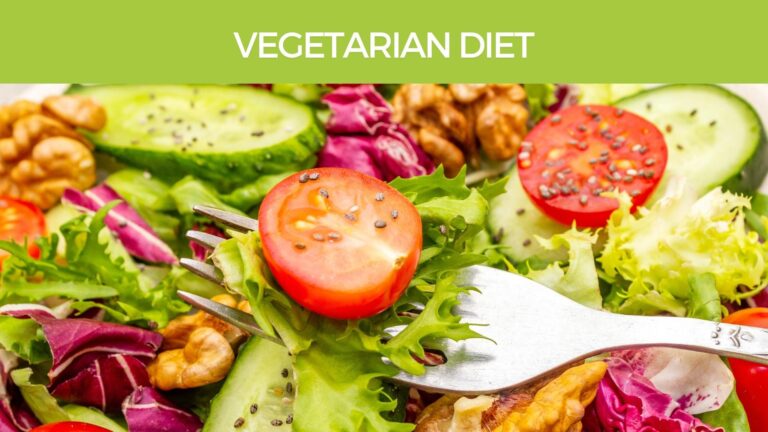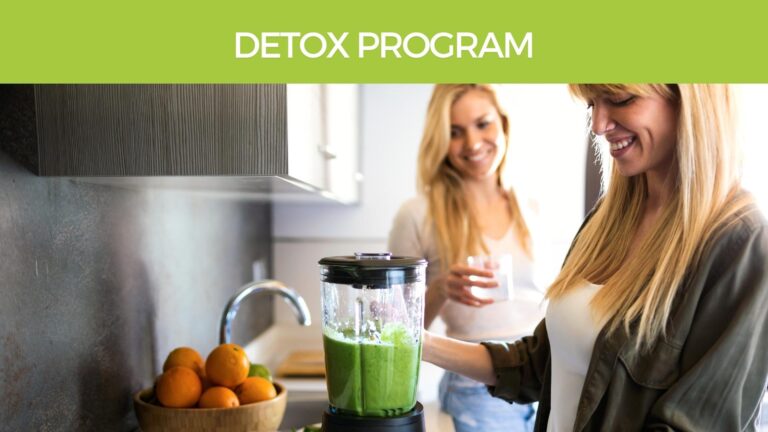- 3 months ago
- 16Minutes
- 4656Words
- 1039Views
The Ultimate Herbal Gut-Health Range
(1) Berg, R.D: (1196) The indigenous gastrointestinal microflora. Trends Microbiol. 4:4.30-435. http://www.ncbi.nlm.nih.gov/pubmed/8950812
(2) Biasucci, G: Benenati, B: Morelli, L: Bessi, E: Boehm, G: (2008). Cesarean Delivery May Affect the Early Biodiversity of Intestinal Bacteria.
(3) Journal of Nutrition, Prebiotics: The Concept Revisited http://jn.nutrition.org/content/137/3/830S.long http://www.ncbi.nlm.nih.gov/pubmed/18716189
(4) BizJournal Organic or conventional? New study sides with organic, all the way.
(5) The National Institute of Diabetes and Digestive and Kidney Diseases https://www.niddk.nih.gov/health-information/health-statistics/digestive-diseases
(7) Dietary fiber and prebiotics and the gastrointestinal microbiota. PUBMED https://www.ncbi.nlm.nih.gov/pmc/articles/PMC5390821/
(8) Dietary probiotic supplementation enhances natural killer cell activity in the elderly: an investigation of age-related immunological changes. PUBMED https://www.ncbi.nlm.nih.gov/pubmed/11506196
(9) Enhancement of natural immune function by dietary consumption of Bifidobacterium lactis (HN019).. PUBMED https://www.ncbi.nlm.nih.gov/pubmed/10713750
(10) Systemic immunity-enhancing effects in healthy subjects following dietary consumption of the lactic acid bacterium Lactobacillus rhamnosus HN001
(11) Lactobacillus acidophilus 74-2 and Bifidobacterium animalis subsp lactis DGCC 420 modulate unspecific cellular immune response in healthy adults. PUBMED https://www.ncbi.nlm.nih.gov/pubmed/17440520%20
Four Ways to Control the Microbiome and Gut Health
It’s striking that nearly half the population faces significant digestive issues, and what’s intriguing is that many of these problems are classified in medical texts as having an ‘unknown cause.’
Considering the worldwide rise in obesity, fatty liver disease, metabolic disorders, and the leading causes of death such as cancer and heart disease, which are closely linked to these metabolic issues, it becomes clear that focusing on improving gut health is a logical and vital starting point for overall well-being.
Skip To The Four Ways

Prevalence of Digestive Disorders
Let’s summarize the most common digestive complaints.
Up to 50% of us have poor digestive health and suffer from a metabolic condition associated with digestive imbalance.
Chronic constipation, Indigestion and Acid Reflux, Irritable Bowel Syndrome, and Crohn’s disease are the most common, according to the U.S. Department of Health and Human Services (5)
Chronic Constipation
Chronic constipation is a persistent condition characterized by infrequent bowel movements or difficult passage of stools, typically fewer than three bowel movements per week over a period of several months. It can significantly impact a person’s daily well-being and quality of life.
- Prevalence: 63 million people
- Ambulance visits: 4.0 million
- Hospitalizations: 1.1 million
- Mortality: 132 deaths
Indigestion and acid reflux
Indigestion and acid reflux are digestive conditions where indigestion causes discomfort in the upper abdomen, often accompanied by bloating and nausea, while acid reflux involves the backflow of stomach acids into the esophagus, leading to heartburn and discomfort.
Both conditions can significantly affect daily activities and quality of life, causing persistent discomfort and affecting eating habits and sleep.
- Prevalence: 20 percent of the population
- Ambulance visits: 8.9 million
- Hospitalizations: 4.7 million
- Mortality: 1,653 deaths
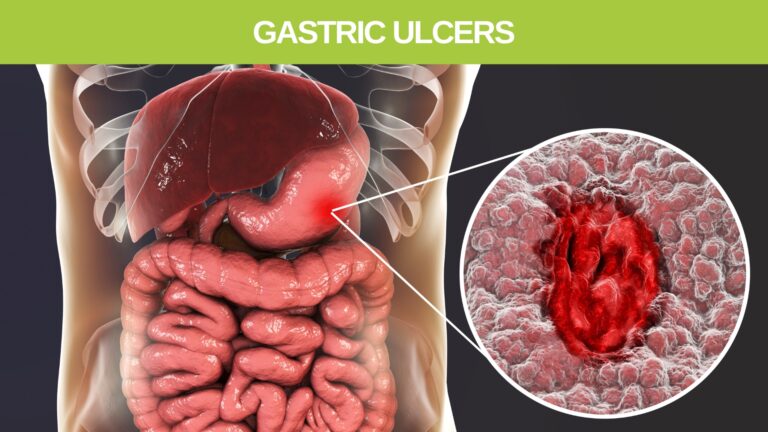
Gastric Ulcers
Gastric ulcers are open sores that develop on the lining of the stomach, caused by erosion from stomach acids and often exacerbated by stress and certain medications.
These ulcers can lead to severe stomach pain, bloating, and in some cases, bleeding, significantly impacting an individual’s ability to consume certain foods and maintain a normal lifestyle.
- Prevalence: 15.5 million people
- Ambulance visits: 669,000
- Hospitalizations: 358,000
- Mortality: 2,981 deaths
Irritable Bowel Syndrome
Irritable Bowel Syndrome (IBS) is a chronic gastrointestinal disorder characterized by symptoms like abdominal pain, bloating, and irregular bowel habits, including alternating periods of diarrhea and constipation.
This condition can significantly impact an individual’s quality of life, affecting daily activities and emotional well-being due to its unpredictable and often embarrassing symptoms.
- Prevalence: 15.3 million people
- Ambulance visits: 1.6 million
- Hospitalizations: 280,000
- Mortality: 21 deaths
Crohn’s Disease
Crohn’s disease is a chronic inflammatory bowel disease that primarily affects the gastrointestinal tract, leading to symptoms such as severe abdominal pain, diarrhea, fatigue, and weight loss.
This condition can be debilitating and cause complications like malnutrition and intestinal obstruction, significantly impacting an individual’s quality of life and requiring ongoing management.
- Prevalence: 359,000 people
- Ambulance visits: 1.1 million
- Hospitalizations: 187,000
- Mortality: 611 deaths
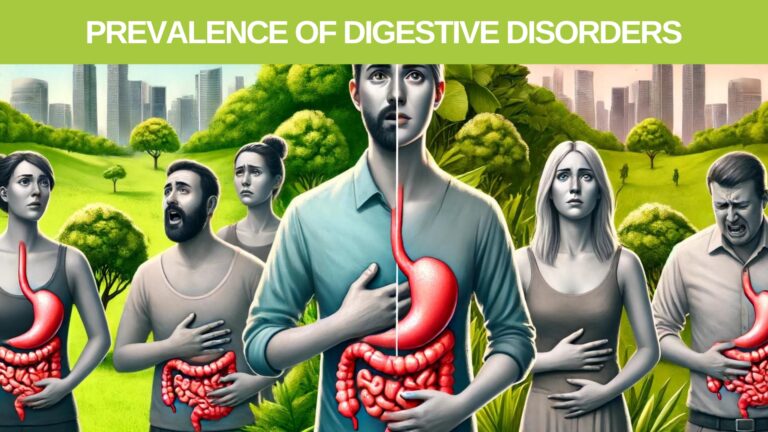
50% Of The Population Affected
Add these together and you get nearly 50% of the population of the United States! I think you get the picture, and this is just the tip of the iceberg when it comes to digestive disorders. Often these complaints come in combination, and one can lead to another.
This begs the question “What is going wrong?” nearly 50% of the population may have constipation, acid reflux, ulcers, irritable bowel, or Crohn’s disease, and we haven’t even talked about Celiac disease, food intolerances, hemorrhoids, gallstones or colon cancer which are also very common digestive disorders.
You can imagine the staggering number affected by all of these combined. No wonder our hospitals are under pressure.
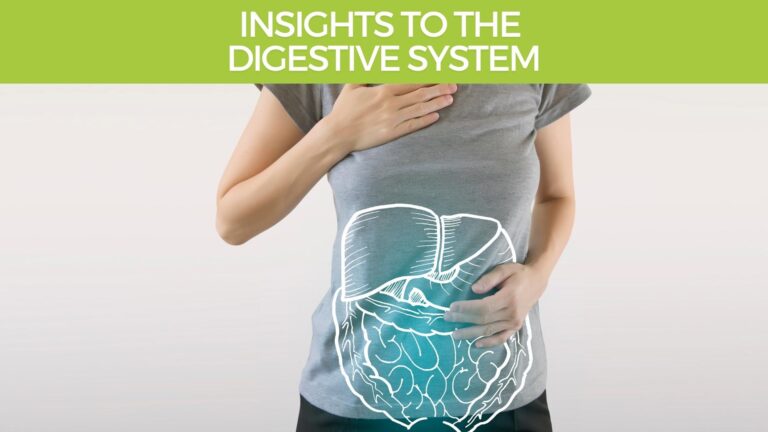
Understanding The Digestive Tract - A Quick Look?
The most complex system in the human body, the digestive tract has multiple parts:
1. Mouth: Digestion starts when food enters the mouth
2. Stomach: Next foods goes down the esophagus into the stomach
3. Small Intestine: Food then leaves the stomach and enters the small intestine
4. Large Intestine: After passing the illiocaecal valve food enters the large intestine or colon.
5. Rectum: The final stage is the evacuation
Digestive disorders can occur at any of these stages. Digestion is far to complex to even begin to understand in detail but I will make a great analogy that may help explain the basic principle.
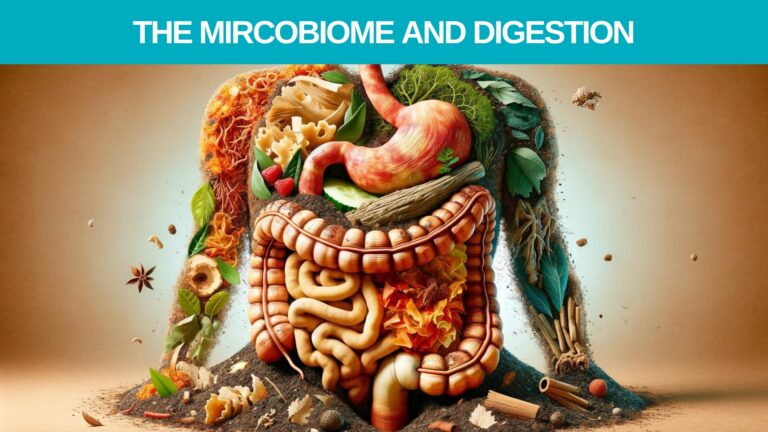
Decompose & Digest
Your digestive system works in a similar way to your home garden compost heap. You throw your scraps on your compost and a little while later you have a nice pile of fertilizer come out the other end. The difference with your gut is that there’s a permeable membrane that filters out the good stuff, the nutrients that your body needs, and what is left behind become the compost.
The process of digestion largely involves acid, enzymes, and bacteria of which there are literally trillions of. These micro-organisms exist in a subtle balance with each other and have to compete with thousands of unhealthy parasitic organisms, bacteria, worms, yeast, mold, and fungi. If our health organisms become deficient, then the unhealthy varieties move in for the kill.
A very important point to remember about what you eat relates to this simple fact. Don’t eat anything that you wouldn’t throw on your compost heap because it simply won’t digest properly. For example, most factory-processed foods are preserved with chemicals and these will upset your digestion.
What we want to eat are foods that break down naturally like unprocessed fruits and vegetables. These feed the good varieties of microbes and are called prebiotics.
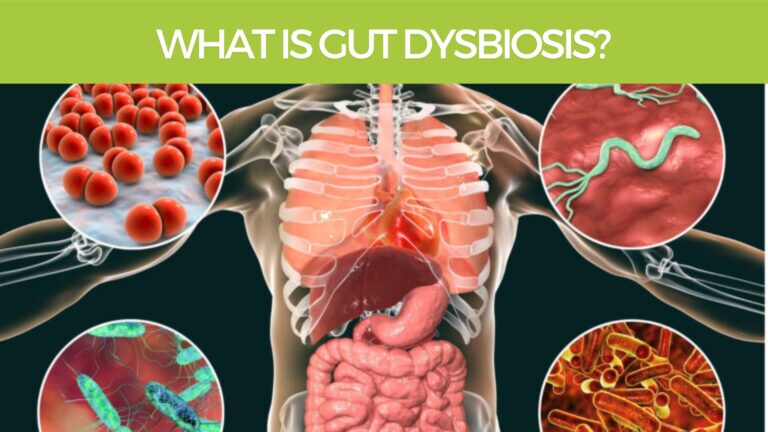
Dysbiosis - What is it?
Gut dysbiosis is an imbalance in the microbial populations of the gastrointestinal tract, which can lead to digestive issues, inflammation, and a heightened risk of various health conditions.
It’s like a gang of thugs disrupting a peaceful neighborhood of microorganisms happily living in your stomach and intestines.
Normally, these tiny creatures, including bacteria, viruses, and fungi, work together to keep you healthy. But when this balance is disturbed, it can lead to various health problems.
In a healthy gut, these microorganisms help with digestion, absorb nutrients, and keep bad bugs in check. However, when there’s an imbalance, several things can happen.
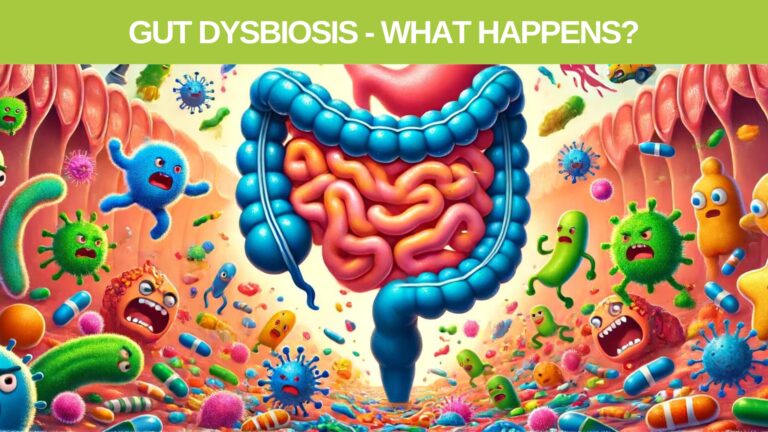
Dysbiosis - What happens?
- Imbalance of Microbiome:
The types of microorganisms can change. Good ones might decrease, and bad ones might increase, upsetting the balance. - Gut Pain:
Inflammation can occur in the gut, causing long-term inflammation in your body. This inflammation can lead to issues like digestive problems, inflammatory bowel diseases and even autoimmune diseases. - Digestive Disturbances:
You might experience tummy troubles like indigestion , acid reflux, bloating, gas, diarrhea, or constipation. - Immune Dysregulation:
Your immune system might not work as well, making you more prone to infections and even autoimmune diseases like Crohn’s disease. - Metabolic Disruptions:
It could affect your metabolism, potentially leading to problems like obesity and diabetes. - Changes in Mood
Interestingly, it may also impact your mood, possibly contributing to feelings of depression or anxiety.
In simple terms, gut dysbiosis is when the harmony in your gut’s microorganism community gets disrupted, and it can cause a wide range of health problems.
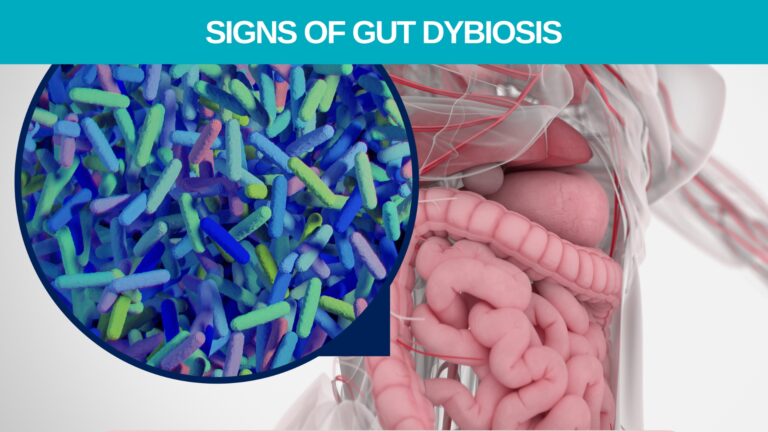
Chronic Dysbiosis
Most commonly, long-term gut dysbiosis will eventually lead to inflammation of the gut lining and disruption to digestive processes.
Some of the most common diseases associated with intestinal dysbiosis include:
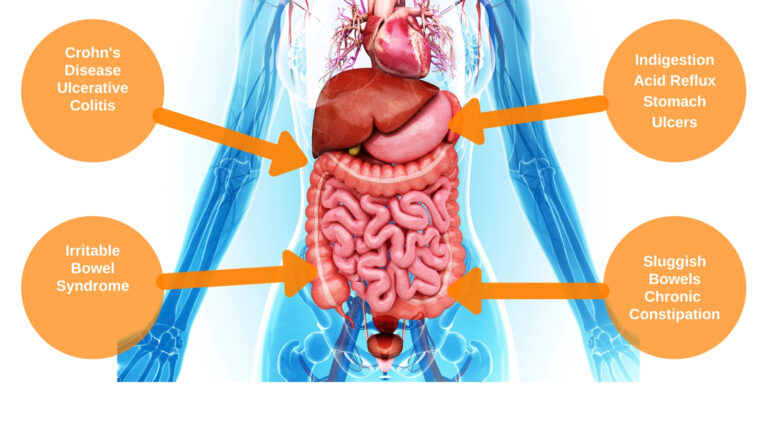
What are some other symptoms of Gut Dysbiosis?
- Bloating, belching and flatulence:
- Indigestion, constipation, diarrhea:
- Chronic Fatigue: and
- Gastrointestinal pain or discomfort.
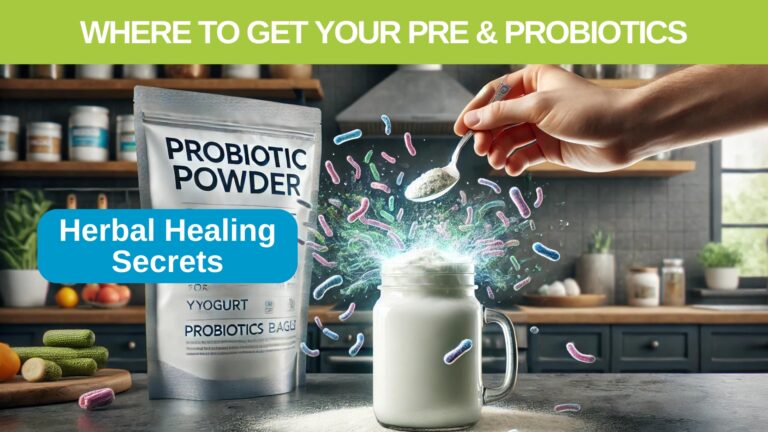
1. Prebiotics For Gut Health
There are three powerful and practical ways to take control of your gut microbiome and get gut dysbiosis under control, and these include.
- More Prebiotics – These can be introduced using dietary methods
- More Probiotics – Can be done either by dietary means or via supplements.
- Medicinal Herbs – Can also be done either by dietary means or via supplements.
Let’s explore these further.
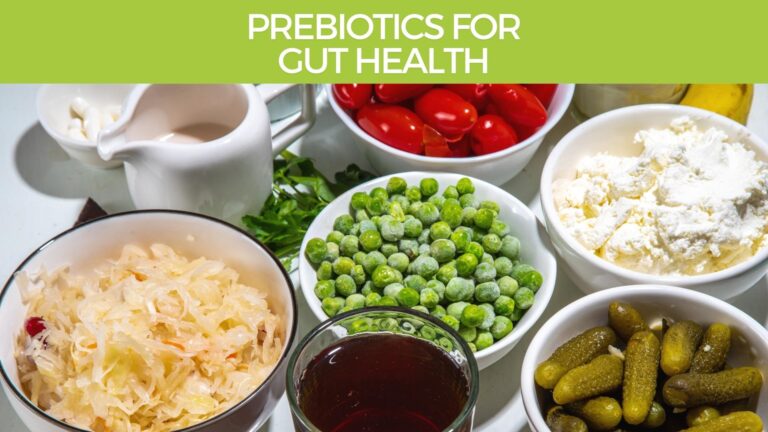
Prebiotics to treat Gut Dysbiosis
None of the natural microbial species that are normally in our Gut are bad overall. Some yeasts and bacteria can actually help get our gut back in shape.
What are Prebiotics?
- Originally defined in 1995 by Gibson and Roberfroid as “a non-digestible food ingredient that beneficially affects the host by selectively stimulating the growth and/or activity of one or a limited number of bacteria in the colon and thus improves host health. (7)
- Indigestible food ingredients that stimulate the maintenance and development of good Gut microorganisms.
What Prebiotics do!
- Introduce good bacteria into the Gut whilst prebiotics act as a fertilizer for the good bacteria that are already there.
- Have great potential to improve or maintain a balanced intestinal microflora (microbiome) to enhance Gut health and general well-being. (3)
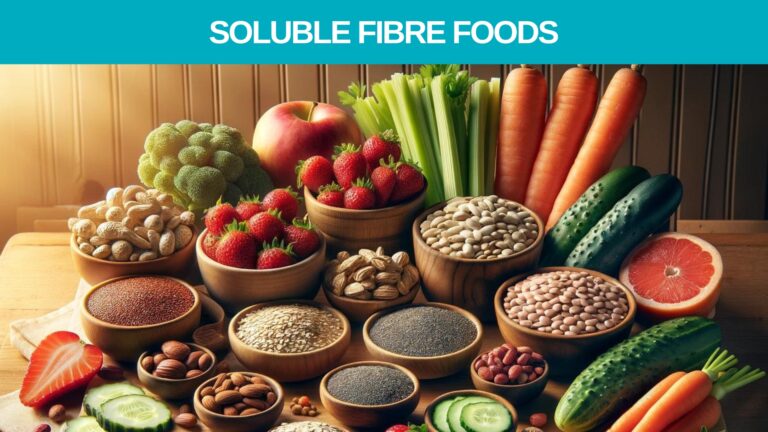
Prebiotics in fiber
Fiber can be soluble or insoluble and can be found in lots of fruits and vegetables.
Insoluble Fiber – It goes into our bodies and pretty much comes out the same! It doesn’t dissolve water and goes through us pretty much intact. It provides bulk and stimulates the bowel wall to move.
You can find these fibers in vegetables, seeds, nuts, whole grains, and the skins of apples.
Soluble Fiber – It turns into a gel by taking in water. It slows down digestion and the uptake of nutrients. Through this process, soluble fiber stops a rapid increase in blood sugar levels and they make us feel full.
Some examples of soluble fiber include linseeds, slippery elm, psyllium hulls, chia seeds, lentils, strawberries, beans, nuts, cucumbers, celery, and carrots.
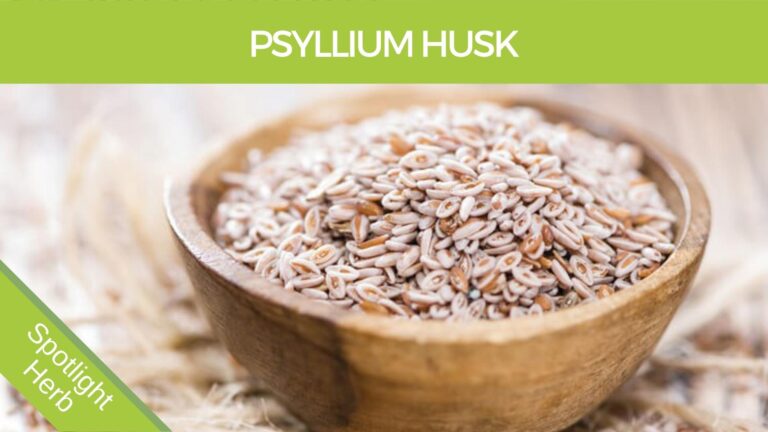
Mucilaginous Fibre
Psyllium is classified as a mucilaginous bulking fiber due to its powerful ability to form a gel in water.
- Acts as a sponge – absorbs water and waste material in the bowels.
- Softens stools – Significantly increase the level of stool moisture and both wet/dry stool weight
- Relieves Constipation – Has great effects in relieving constipation and improving bowel health.
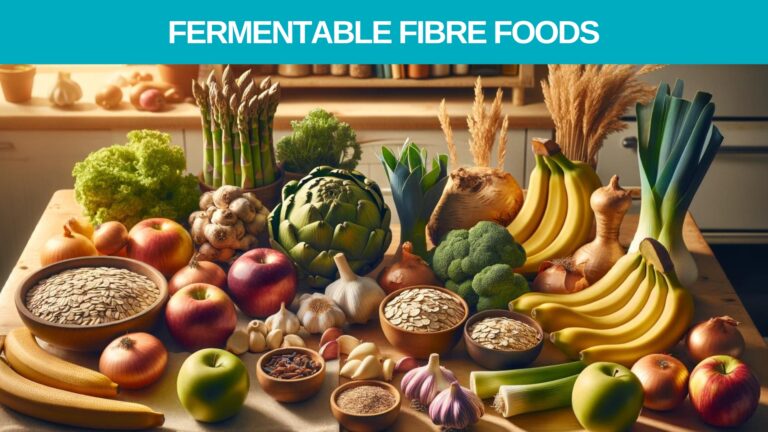
Colonic Fermentation
An important factor in the positive effect of prebiotics is colonic bacterial fermentation.
This allows the positive gut bacteria to thrive. Easily gut-fermented foods include: apples, artichokes, asparagus, bananas, chicory root, garlic, leeks, onions, and oats. (7)

2. Probiotics - Good bacteria
There is a lot of talk about probiotics and for good reason. With our processed food diets, we have become deficient in the healthy bacteria and other organisms that should be alive in our Gut.
Billions of microorganisms live in our digestive systems – they live in an antagonistic/competitive way of fighting against one another constantly. Most of these organisms have a win-win relationship with us. The digestive system makes a nice warm environment for them as well as feeding them.
In turn, probiotics give benefits such as:
- Improved Bowel Motility – the ability to move spontaneously and actively, consuming energy in the process;
- Assist Nutrient Absorption/Production – such as folate (needed for healthy cell reproduction), vitamin K for blood clotting, B12 which helps make DNA and red blood cells, biotin for cell growth and fatty acids which help maintain healthy cells in the bowel wall;
- Gut Immune Function – Development and maintenance of a healthy immune system and bowel wall;
- Control Bad Bacteria – The production of chemicals that hinder the growth of other types of bacteria;
- Carbohydrate Digestion – The breakdown of the complex carbohydrates that our digestive systems can’t digest – such as cellulose and starches; and
- Cancer Protection – Facilitates the breakdown of cancer-developing carcinogenic substances that enter the bowel. (1)
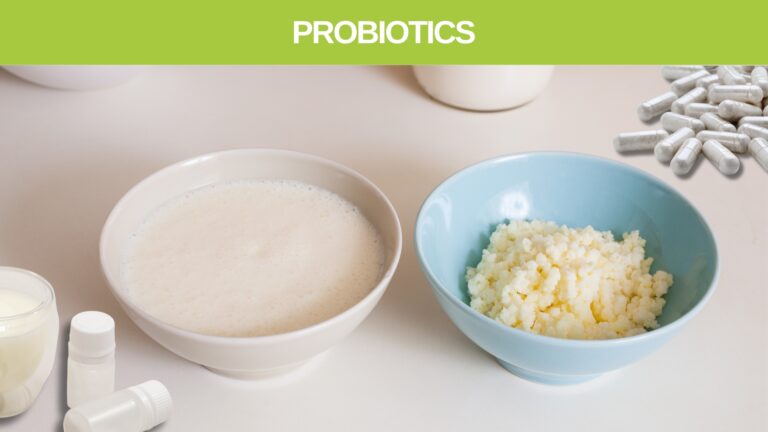
Probiotics for Immunity
We mentioned the development of healthy immunity above. It is well recognized that breast milk has a powerful effect on building the immune system of the baby, but lesser known is the effect of good prebiotic and probiotics in the diet can also go a long way towards improving the immunity of adults and even the elderly.
Some examples include:
- Killer Cell Activity – Probiotic supplementation has been shown to enhance natural killer cell activity in the elderly (8). In a 3-week trial consumption of lactose-hydrolyzed low-fat milk powder supplemented with probiotics promoted an increase in immune killer cell activity of 147%. (10)
- Natural Immunity – Another study demonstrated that dietary consumption of probiotics can enhance natural immunity in healthy elderly subjects, and that a relatively short-term dietary regime (6 weeks) is sufficient to impart measurable improvements in immunity that may offer significant health benefits to consumers. (9)
- Immune Cell ProductionE – One study showed that consuming 300g/day of yoghurt containing B. lactis and L. acidophilus strain for 5 weeks significantly elevated the percentage of granulocytes and monocytes showing phagocytic activity from 92 to 95%. (11)
3. Other Foods For Gut Health
Many foods can help digestive health and improve the digestibility of other foods. While other foods can provide fibre, feed the microbiome, and balanced acidity.
- Go Plant-Based – A mainly plant-based diet is recommended
- Avoiding Lectins – it is worth avoiding too many lectin-rich foods, such as nuts, seeds, and beans if you’re having digestive issues. Read More about Lectins Here
- Go Organic – Organic food has much higher levels of beneficial micro-organisms, minerals and other nutrients.
Digestive Enzymes
Papaya and pineapple are two of the richest plant sources, as attested by their traditional use as natural “tenderizers” for meat. Papain and bromelain are the respective names for the protein-digesting enzymes found in these fruits and these are included in the Herbal DETOX and BodiTune DETOX ‘n SLIM products to assist in the digestive process.
Organic Food
Eat a wide variety of foods, especially whole foods that are unprocessed, raw, organic or as minimally processed as possible.
- More Nutrition – A study, called the largest of its kind, has found that organic foods have more nutrition than conventional foods, including more antioxidants and fewer, less frequent pesticide residues. (4)
- More Probiotics – Raw organic foods contain lots of bacteria and fiber to feed and nurture the natural Gut bacteria. These bacteria are also Prebiotics along with fiber as we discussed above. Read More about Organic Food.
- More Antioxidants – Organic foods have been shown to have up to 10 times the level of antioxidants of non-organic food, giving them anti-inflammatory effect.
Vegetarian Diet
A diet high in fiber provides more prebiotics for the good gut micro-organisms, plus fruit and vegetables are our primary source of digestive enzymes.
- Lowers BMI – Research also shows that plant-based diets are cost-effective, low-risk interventions that may lower body mass index (BMI), lower blood pressure and cholesterol levels.
- Reduced Medications – They may also reduce the number of medications needed to treat chronic diseases and lower ischemic heart disease mortality rates. Physicians should consider recommending a plant-based diet to all their patients, especially those with high blood pressure, diabetes, cardiovascular disease, or obesity. Read More about Vegetarian Diet.
4. Top Herbs for Gut Health
Herbs are well known for their effectiveness in treating digestive complaints. Many herbs have a long tradition of use, which has now been scientifically proven. Combining a prebiotic, whole-food diet with digestive herbs has got to be the ultimate gut-health protocol. Read more about these top 7 herbs I recommend by clicking the links below.
- Peppermint: Peppermint can help soothe the gut and reduce bloating by relaxing the digestive system’s muscles, thereby promoting a more balanced gut microbiota.
- Fennel: Rich in fiber and anti-inflammatory properties, fennel assists in maintaining gut integrity and encourages the growth of beneficial gut bacteria.
- Ginger: Ginger is known for its anti-inflammatory and antioxidative properties, which can help in protecting the gut lining and promoting a healthy gut microbial balance.
- Cayenne: Cayenne pepper aids digestion by stimulating the digestive tract, increasing the production of digestive enzymes and gastric juices, which supports a healthy gut microbiome.
- Cloves: Cloves contain eugenol, a compound with antibacterial qualities that can help in managing gut flora, potentially reducing harmful bacteria and fostering a healthy digestive environment.
- Slippery Elm: The mucilage in slippery elm coats and soothes the stomach and intestines, which can help in nurturing beneficial gut bacteria and maintaining a healthy mucosal lining in the gut.
- Aloe Vera: Aloe vera’s natural soothing properties help in reducing gastrointestinal inflammation and its prebiotic components can enhance the growth of good gut bacteria.
Below are my favourite herbal formulations for balancing general gut health over the long-term. It’s a product I developed personally for my clients in the late 1990’s and the results are wide-reaching in terms of gut health.
5. Herbal Detox Program
The Ultimate Herbal Detox program contains all of these herbs discussed above and more mentioned below, plus it provides your digestive system with a complete cleanse, balance and restoration process. It is simply one the best things you could ever do for your intestinal balance and general health.
- Cleanse and Heal The Digestive System with Herbs
- Introduce a Strict Gut Health Diet Plan for 2 weeks
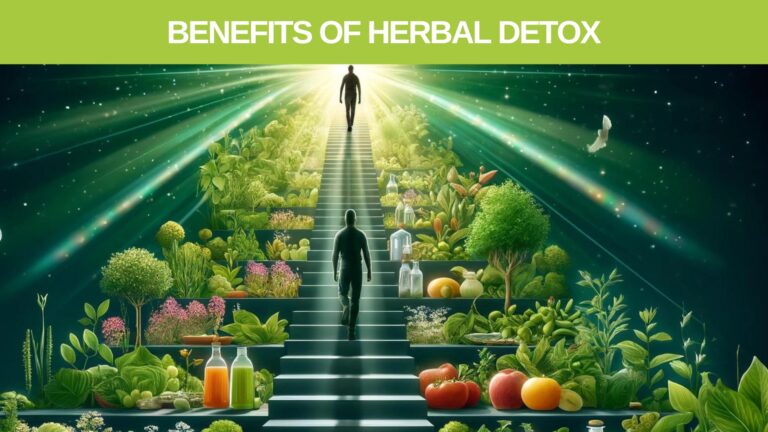
What Are the Benefits of doing the Ultimate Herbal Detox?
The herbs below that are employed within the Detox program offer these benefits.
- Colon Cleanse – A deep Colon Cleanse with Psyllium, Cascara bark, Turkish rhubarb;
- Parasite Treatment – A thorough Parasite Cleanse with Black Walnut, Cloves, Goldenseal and Wormwood;
- Liver Cleansing – A Liver detox with Milk Thistle 7000mg Daily, Dandelion, and Barley Grass;
- Heavy Metals – A Heavy Metal DETOX (with both Cilantro and Chlorella) Heavy Metal Detox herbs have been added to assist in the removal of metallic toxic substances from the body. Metals such as Cadmium, Lead, and Mercury can build up over time and negatively affect your health. The new Detox will assist in the removal of these toxic substances; and
- Pre-biotics – Including Chia seeds, Aloe Vera, Slippery Elm and many more. This gives the colon a much more gentle bulking soluble and insoluble fiber and gentle laxative effect while providing protein, mucilage prebiotics and a broad range of nutrients to support a healthy colon.
I highly recommend completing a Herbal Detox program once or twice a year to maintain a healthy digestive system.
Remember “You are what you eat” or even more accurately “You are what you absorb”
Brett Elliott ®

